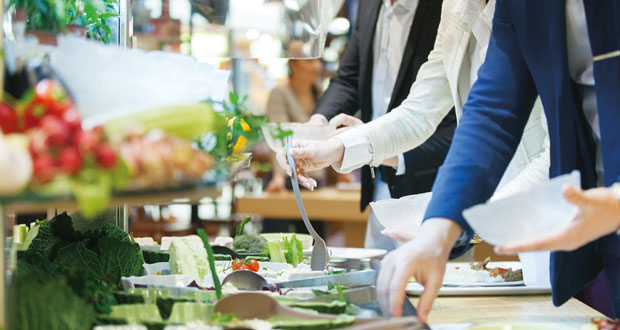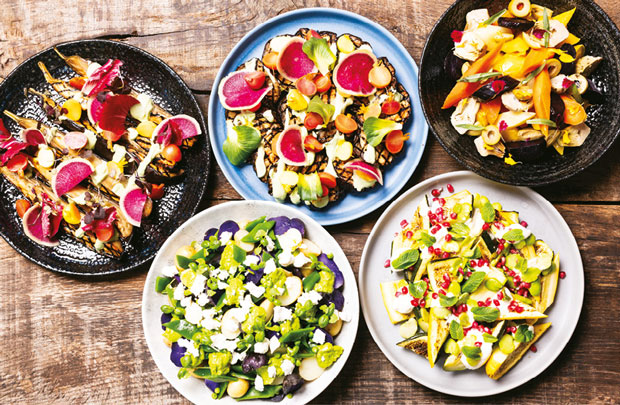SUSTAINABILITY AWARENESS
Reflecting the growing awareness of the carbon footprint of food, ISS UK has undertaken a huge review of its entire recipe database and actively reduced the amount of meat in hundreds of its recipes by an average 30 per cent per dish.
“We also launched the Coolfood Meals initiative into our workplaces and healthcare settings” says Cregan. “Coolfood Meals are externally accredited recipes that produce 38 per cent lower carbon emissions than the average meal and also meet stringent nutrient criteria. They meet the level of food-related emissions that the World Resources Institute’s research says we need by 2030.
“In 2022 we were the first food service provider to sign the World Resource Institutes’ Coolfood Pledge across our global food business. Signing the pledge globally means we have a commitment to reducing greenhouse gas emissions associated with our food by 25 per cent by 2030 right across our food business, and there are many initiatives happening around the world to achieve this.”
Last year BM Caterers became the first company to pilot a new sustainability awareness educational programme. Working with nutritional software company Nutritics’ sustainability consultancy arm, the catering firm holds weekly ‘Knowledge Labs’ which work as educational briefs that managers deliver to their teams as part of their usual team briefing sessions. As a result, the firm has seen a marked improvement in teams’ understanding of sustainability.
Explains Sally Grimes, Quality Standards Manager, BM Caterers: “We wanted to educate our teams to empower them with the knowledge they need to play their part in our sustainability journey.
“We delivered Knowledge Labs briefs over 10 weeks to 70 team members across six sites, teaching them about key topics including carbon and water footprints, climate change, and food sustainability, with quizzes to gauge their level of understanding on the issues. We also covered food waste, energy, greenwashing, and biodiversity.
“Following the 10-week programme there was a 56 per cent increase in awareness of sustainability and its importance to our planet among BM team members, awareness of BM’s sustainability policy increased by 18 per cent, and 78 per cent of those who took part in the training stated that it was valuable.”
Independent hospitality provider, BaxterStorey has also increased its provision of plant-based diets, by encouraging chefs to adapt menus to include more vegetarian and vegan options, with those being trained at the firm’s Chef Academy being taught to introduce plant and planet friendly alternatives.
Says Annelie Selander, Chief Sustainability Officer: “We also promote ways to use the whole of the plant (beet and carrot tops, for example) as well as encouraging use of varieties that have less of an environmental footprint than others (such as purple sprouting broccoli over Calabrese).
“What’s more, our produce arrives into BaxterStorey locations alongside other deliveries, feeding into already-existing routes to market, so we don’t contribute to food miles.”
BaxterStorey’s Nourish to Flourish strategy begins at the procurement level, helping to educate and provide insight into how a food product is grown, harvested and transported to help support sustainable initiatives in the kitchens and elsewhere in the business.
Says Selander : “We only work with growers who practice good husbandry and regenerative growing techniques, putting the health of our soil, our environment and people at the forefront of any decisions”.






